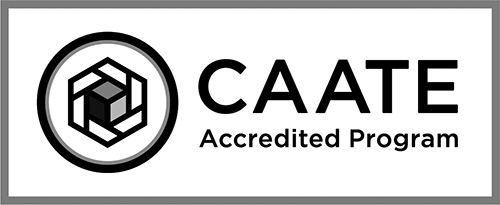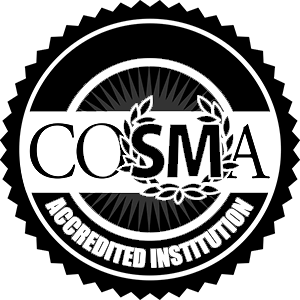Bachelor of Science in Nutrition
Continue to main content
Bachelor of Science in Nutrition Degree Map
Explore the courses you'll need to complete your nutrition science degree.
Bachelor's Degree in Nutrition Salaries & Careers
-
$74k
Dietitian
According to the Bureau of Labor Statistics, the mean annual salary for a dietitian is $73,850.
-
$49k
Food Science Technician
According to the Bureau of Labor Statistics, the mean annual salary for a food science technician is $49,090.
-
$88k
Food Scientist
According to the Bureau of Labor Statistics, the mean annual salary for a food scientist is $88,350.
The four-year ACEND-accredited program is a major component in the process to obtain the educational background and experiences required to become a registered dietitian. After graduation, a supervised practice and successful completion of a national credentialing exam are required. You’ll complete a minimum of 120 credit hours to complete this degree, including the general education requirements and at least 39 senior division hours.
Nutrition students must be admitted to the Didactic Program in Dietetics prior to enrolling in upper division (300 level or above major courses) dietetics courses.
Required Courses:
- BS113 Anatomy & Physiology I (4)
- BS114 Anatomy & Physiology II (4)
- FN235 Nutrition for Health (3)
- FN240 Introduction to Food Science (3)
- FN255 Nutrition I (3)
- FN340 Professional Dietetic Seminar (1)
- FN355 Lifespan Nutrition (3)
- FN540 Community Nutrition (3)
- HL303 Research Methods (3) OR PY271 Introduction to Behavioral Statistics (3)
- MI101 Introduction to Computer Applications (3)
- PY101 Introduction to Psychology (3)
Choose one advising track:
Didactic Program in Dietetics Track – no minor required
Students must be admitted to the Didactic Program in Dietetics prior to enrolling in upper division (300 level or above major courses) dietetic courses.
- BS240 Microorganisms/Human Host (4)
- CH181/184 Basic Principles of Chemistry + Lab (4)
- CH234 Organic & Biological Chemistry (3)
- FN310 Food & Culture (3)
- FN320 Essentials of Food Science (4)
- FN330 Financial Management and Cost Control in Dietetics (3)
- FN360 Food Safety & Sanitation (3)
- FN370 Nutrition Assessment (3)
- FN401 Sports Nutrition (3)
- FN415 Principles & Practices of Food Service for the Dietitian (3)
- FN450 Food Service Operations (4)
- FN502 Nutrition II (3)
- FN503 Medical Nutrition Therapy I (4)
- FN504 Medical Nutrition Therapy II (4)
- FN505 Senior Dietetic Seminar (1)
- FN510 Nutrition & Health Education (3)
- FN525 Nutrition Counseling (3)
- MA116 Precalculus A (3)
Nutrition Science Track – no minor required
- BI163 Evolution & Ecology (4)
- BI173 Cell & Organismal Biology (4)
- BI283 Genetics (4)
- BI310 General Microbiology (4)
- CH184/185 General Chemistry I Lecture and Lab (4)
- CH186 General Chemistry II (3)
- CH187 General Chemistry II Lab (1)
- CH341 Foundations of Organic Chemistry (4)
- CH342 Organic Chemistry Lab I (1)
- CH343 Advanced Organic Chemistry (3)
- CH344 Organic Chemistry Lab II (2)
- CH531 Biochemistry (3)
- FN320 Essentials of Food Science (4)
- FN360 Food Safety & Sanitation (3)
- FN370 Nutrition Assessment (3)
- FN502 Nutrition II (3)
- FN503 Medical Nutrition Therapy I (3)
- MA116 Precalculus A (3)
Nutrition and Wellness Track – minor required
- FN310 Food & Culture (3)
- FN370 Nutrition Assessment (3)
- FN503 Medical Nutrition Therapy I (4)
- FN510 Nutrition & Health Education (3)
- FN520 Nutrition & Aging (3)
- HL111 Introduction to Health Management (3)
- HL120 Health Perspectives (3)
- HL260 Health Promotion Practicum (3)
- HL320 Community Health (3)
- HL332 Lifestyle Disease Risk Reduction (3)
- HL432 Health Promotion Programs (3)
- HL490 Program Planning/Evaluation (3)
- MA123 Mathematical Reasoning and Modeling (3)
- MA155 Statistical Reasoning (3)
"Critical Courses" are italicized and bolded. These courses are indicators of potential for success in the degree program.
Some requirements may be fulfilled by coursework in major program.
- Social and Behavioral Sciences – 6 hours
- Constitution Requirement – 3 hours
- Written Communication – 6 hours
- Oral Communication – 3 hours
- Natural Sciences – 7 hours (from two disciplines, one to include a lab)
- Mathematics – 3 hours
- Humanities & Fine Arts – 9 hours (from at least two disciplines)
- Additional requirements – 5 hours (to include UI100 for native students)
- Civics examination
First Year
Fall Semester (16 Hours)
- UI100 (1)
- EN100 (3)
- PY101 (3)
- General Education (3)
- General Education (3)
- General Education (3)
Spring Semester (15 Hours)
- FN235 (3)
- MI101 (3)
- Track Course (3)
- General Education (3)
- General Education (3)
Second Year
Fall Semester (16 Hours)
- BS113/013 (4)
- FN240 (3)
- FN255 (3)
- HL303/PY271 (3)
- General Education (3)
Spring Semester (14 Hours)
- BS114/014 (4)
- FN340 (1)
- General Education/Track Course (3)
- Track Course (3)
- Track Course (3)
Third Year
Fall Semester (15 Hours)
- FN355 (3)
- Track Course (3)
- Track Course (3)
- Track Course (3)
- General Education (3)
Spring Semester (15 Hours)
- Track Course (3)
- Track Course (3)
- Track Course (3)
- General Education (3)
- General Education (3)
Fourth Year
Fall Semester (14 Hours)
- FN540 (3)
- Track Course (3)
- Track Course (4)
- Track Course (4)
- Elective (1)
Spring Semester (14 Hours)
- Track Course (3)
- Track Course (3)
- Track Course (4)
- Track Course (4)
Milestone: A major GPA of 2.5 is required for admission into HL498.
A “Milestone” signifies a significant stage for a student in the completion of a degree.
What will it cost?
Become a Redhawk.
Do more than dream about the future. Take the first steps to make it all happen.
Cape Girardeau, Missouri 63701








